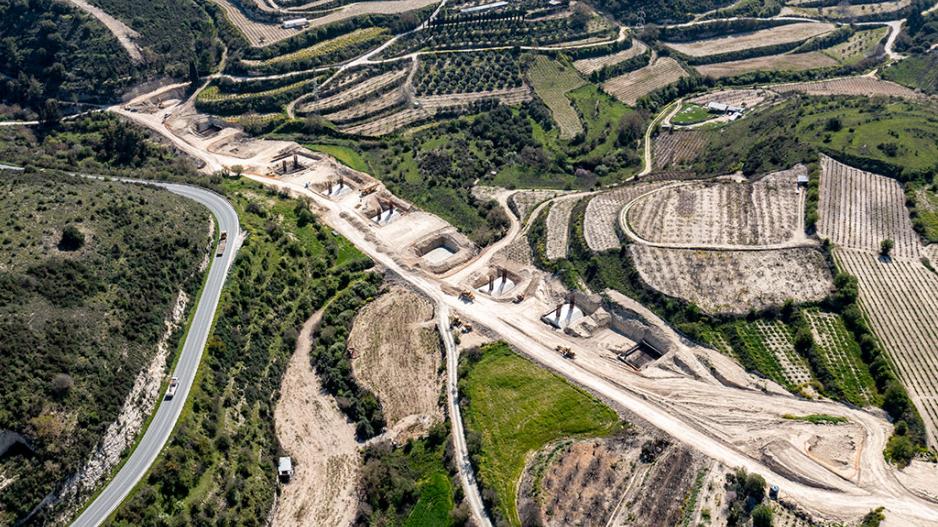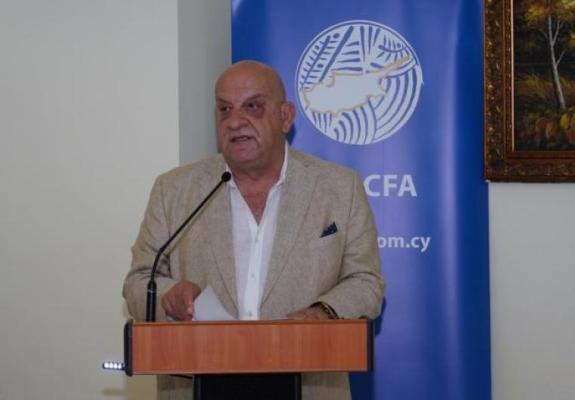Paphos-Polis Highway: Legal Service’s Letter Sparks Controversy
Cypriot MPs Decry Silencing Attempt Amid Paphos-Polis Road Contract Dispute
Members of Parliament have condemned what they describe as an attempt to suppress parliamentary debate after Cyprus’ Legal Service sent a letter urging that discussions on the collapsed contract for the Paphos-Polis Chrysochous road should not take place in the Parliamentary Audit Committee due to ongoing court proceedings.
Despite the Legal Service’s request, the committee meeting proceeded on Thursday in a packed chamber, with MPs—both committee members and non-members—present, along with invited guests, including the Minister of Transport, Communications, and Works, the current and former Auditor General, the General Accountant, and representatives from the Greek construction group Aktor. However, after initial statements from MPs, the session continued behind closed doors.
According to committee chairman Zacharias Koulias (DIKO), the session was divided into two parts: in the first, MPs heard from company representatives, while the second focused on the government’s position.

Deputy Chairman of the committee and DIKO MP, Chryssis Pantelides, who initiated the examination of halted infrastructure projects, asserted that the committee had a duty to review the matter. Referring to the Legal Service’s letter, he argued that MPs were being silenced under the pretext of protecting the public interest.
Pantelides stressed that serving the public interest is Parliament’s primary mission, particularly for the Audit Committee. He noted that ensuring the Legal Service wins court cases is not the sole definition of public interest. “If that were the case, then every time the Legal Service lost a case, we would have to accuse it of failing to serve the public interest,” he said.
He also pointed out that parliamentary committees had previously discussed cases pending before the courts without issues. “We have procedures in place and have demonstrated our commitment to safeguarding the public interest,” he added.
Furthermore, he highlighted multiple public statements made by state officials on the issue since the case was brought before the court. “I do not accept that this discussion negatively impacts the public interest,” he stated, emphasizing that well-structured contracts are essential to avoid litigation in the first place.
Pantelides argued that the priority should not be winning a court case but ensuring that Paphos finally gets the road it has demanded for decades. “We should be concerned about inaugurations, not court rulings. Public interest is not just about legal victories; it’s about delivering the projects society expects,” he concluded, stressing the importance of transparency, accountability, and oversight.
DISY MP Onoufrios Koullas emphasized that the key issue was ensuring the project is completed. “It was a political decision of our government to proceed with the project despite technocratic objections,” he noted. He stressed the importance of resuming construction, investigating what went wrong, and learning lessons for the future.
Regarding the Legal Service’s letter, he acknowledged the need for caution when discussing ongoing legal cases but found its warning reasonable. He also called for an investigation into whether the contract was properly drafted and whether the company met the necessary criteria. “Even the most perfectly drafted contract can face unforeseen disputes,” he admitted, adding that the reasons behind the termination must be thoroughly examined.
“Whatever happens, finishing this project will now cost significantly more and take much longer,” he concluded.
AKEL MP Christos Christofides welcomed the Legal Service’s decision to withdraw two contentious points from its letter. These included a paragraph suggesting that public statements on pending cases were impermissible and a section advising state officials not to attend the committee session.
“This is not the first time we have faced threats of criminal prosecution as MPs. We were threatened for questioning the delay in the Yiannakis trial. We were threatened for expressing opinions on the Anti-Corruption Authority’s procedures. Silence cannot be imposed on Parliament,” he stated.
He stressed that parliamentary scrutiny is not just a right but an obligation. “We are not judges, but it is unacceptable to attempt to silence the representatives elected by the people,” he asserted.
DIKO MP Panikos Leonidou acknowledged the public’s concern over failed infrastructure contracts and defended the committee’s right to investigate the issue within the legal framework. He also called for institutional cooperation and restraint to serve the public interest.
“As MPs, we must weigh what is more crucial: informing the public immediately or allowing due process to take its course before making judgments,” he said, urging Parliament to protect its procedures and credibility.
DIPA-Cooperation MP Alekos Tryfonides criticized the Legal Service’s letter as an insult to Parliament. “We are fully capable of protecting the public interest, just as state officials are. It is our duty to discuss these issues while exercising caution in our public statements,” he said.
He further argued that restricting public discussion to avoid influencing a trial undermines judicial independence. “Public interest is paramount, but transparency and accountability are also integral to serving it,” he concluded, stressing the need to combat public funds mismanagement.
VOLT MP Alexandra Attalides underlined that budget accountability is a fundamental parliamentary duty, ensuring transparency and responsible public fund management. “No institution can impose restrictions on Parliament’s role. The letter we received was unacceptable and should never have been sent to MPs,” she said.
She added that effective accountability is a pillar of anti-corruption efforts. “In other countries, if so many projects had collapsed under a government’s watch, that government would have resigned along with the failed projects. Elsewhere, top officials would be facing prosecution,” she remarked.
Attalides expressed concerns about Cyprus’ reputation abroad, noting that some of these projects involve EU funding. “It is shameful that we cannot manage a single infrastructure project properly. This investigation must proceed, and those responsible must be held accountable,” she asserted.






